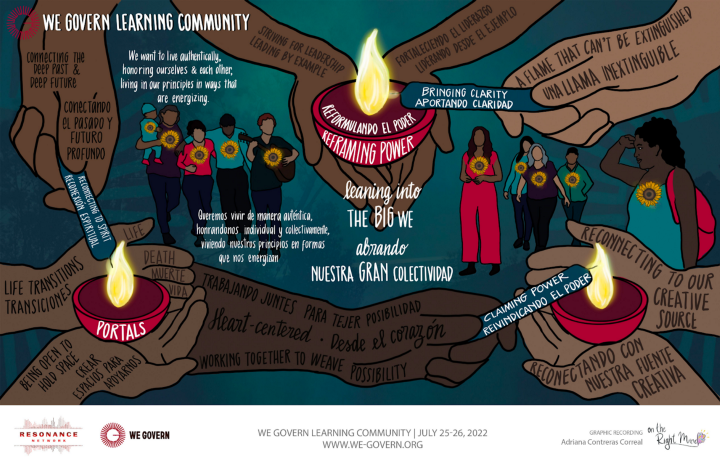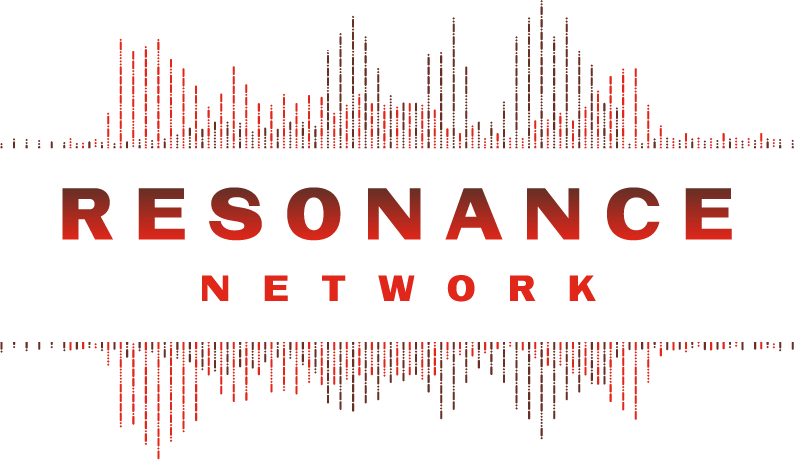Lighting the Candle of Liberatory Governance
As phase two of the WeGovern Learning Community winds to a close, participants gathered to reflect on their journey.
This community came together with a shared commitment to practice liberatory governance — and we did. Participants—including Resonance Network, who convened the learning community space but practiced as a participant team—reimagined what governance beyond dominant power structures could look like in our organizations, tribes, networks, and teams.
And what came through as we reflected on the experience was not only the transformations that took shape externally within these groups, but internally among participants as well.
Our choices add up to the world we’re building — and once you feel the power and possibility in choice making and community building from a place of liberation and care, you can’t turn back. We all felt that.
Our commitment to governance practice kindled a deeply felt sense of what is possible.
The process of embracing WeGovern—a set of governance principles rooted in mutual care, dignity, and thriving–in our own lives—helped each of us realize that we have more agency in the choices we make to live from our values than we realized.
Of course, the systems of control and domination we live within want us to believe that power exists outside of ourselves — but the opposite is true. Our choices add up to the world we’re building — and once you feel the power and possibility in choice making and community building from a place of liberation and care, you can’t turn back. We all felt that.
This practice became an affirmation that governance begins with each of us — in the choices we make each day to engage with ourselves, each other, our families, and our communities.
Bringing clarity
Each of us felt this sacred responsibility — an embodied knowing that developed in the practice. We described it as “a bell that can’t be un-rung” or similarly, “a flame that can’t be extinguished.” Once we felt that sense of agency in choice making — and began to witness the ripple effect of transformation in our communities — we couldn’t go back to business as usual.
But the future we are moving toward isn’t completely unknown to us — it lives in our lineage, in the memories of our ancestors, in the wisdom of the land that sustains us, and in the relationships we are building with one another.
Instead, we find ourselves choosing to move into the unknown — away from what has been familiar, and toward what feels whole. The future we are moving toward is unknown — it is unknown to the collective systems we live within that have shaped so much of our lives, profited from limiting our perceptions of possibility, and capitalized on dulling our sense of collective purpose. But the future we are moving toward isn’t completely unknown to us — it lives in our lineage, in the memories of our ancestors, in the wisdom of the land that sustains us, and in the relationships we are building with one another.
Reconnecting to spirit
The sacred responsibility of this way of worldbuilding, the connection to lineage and ancestral memory–bringing the wisdom of what was into what will become–is spirit work. It is work that requires tending to sustain it, but also sustains us. We seek spirit the same way sunflowers seek the sun.
We seek connection to spirit not just to ask for what we want, but to remind us of our humanity, our power, and our clarity in service to a higher purpose–a world where all beings can thrive. And that world is taking shape each day, in the relationships between us. If we are the candles that cannot be extinguished, our connection to spirit and purpose kindles the flame so that we can light other candles.
Claiming power
The flames we tend are a reminder of our power. The power that naturally comes from connection to source and purpose. The organic current of creative energy that flows when we’re in alignment with purpose and care. Despite the ways oppressive systems try to diminish our power, we are transforming ourselves, our communities, and our collective systems.
We claim our power when we see ourselves within the system–when we see and feel the way our agency, our choices can be used to change it. When our individual agency and power becomes collective. We claim our power when we refuse to be separate–from ourselves, from each other, and from the generations that came before and will come after us. When we accept the sacred responsibility of choosing the way we want to be, in alignment with the world we want to live in.
originally published at The Reverb
Resonance Network is a national network of people building a world beyond violence.
Network Weaver is dedicated to offering free content to all – in support of equity, justice and transformation for all.
We appreciate your support!
donate in the box above or click here


